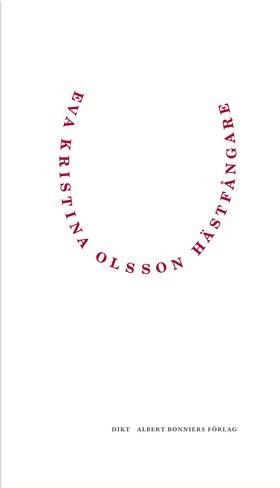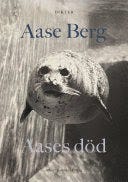I didn’t publish any poems this year, but I did start to write again. Just not for publication. I’m probably done with that. But I did work on and publish quite a few translations - including books by Aase Berg, Ann Jäderlund, Eva Kristina Olsson and Jenny Tunedal. So I’ll list some of that work here.
*
I worked on Eva Kristina Olsson’s The Horse Catcher, a brilliant book of poems that began as a series of photographs of the gardens and city halls in Stockholm and Berlin , then became a film script and then - out of the failure to become a film - finally a poem. This is not unusual for Olsson, whose works often move across genres and media, transforming and refracting as they cross these boundaries. A poem becomes a performance, and a photograph from that performance may show up in a play at later date. There’s a core vision but it’s a vibrating, elastic vision that allows for constant transformations.
Often these transformations are brought on by funding failures. She couldn’t get the funding to make the film so she wrote it as a poem. There’s a bit of Jack Smith about Olsson in that (and other) ways.
I published a few of these in Annulet and Visible Binary. You can see some of the remnants of the original film-script-form, as well as Olsson’s Celan-like lyricism.
I’ll probably be ready to send this manuscript out in near future, as long as I get some spare time to finish it up.
*
I finished translating Aase Berg’s Aase’s Death, her most recent books, which Black Ocean will publish next year. This is a great book but a bleak one, even when as it is - as it often is - saturated with self-indicting humor. Many of the poems take place on the bottom of the sea.
You can find some of the poems in Agni’s online feature.
Berg’s and Olsson’s poems are definitely in conversation. Back in the 80s, when they were both associated with the Stockholm Surrealists, Olsson was Berg’s mentor. Although they are very different writers in some ways, there’s a similar quality to the vibrating little lyrics that are charged in violence and grotesque anatomies.
*
My translation of Ann Jäderlund’s Ensamtal (Lonespeech) came out from Nightboat this past Spring. Spend a lot of time working on this book over the past couple of years. It’s a kind of writing-through of the correspondence between Celan and Bachmann. What makes this book hard to translate - and also what makes it thrilling to translate - is the Jäderlund’s “hand” (to use a painting analogy): short, little poems with dramatic syntactic gestures. This simultaneous minimalism and fierce moves in the syntax.
Some excerpts:
“Not here” in Poetry Daily
Five poems in Northwest Review
Five poems plus a short introductory review in On the Seawall
Let me know if you would like to receive a review copy of the book.
*
I was grateful of all the wonderful responses to the book - it’s very rare for a book of translation to get so many reviews. In this review on the Poetry Foundation website, Janani Ambikapathy calls Jäderlund’s dramatic gestures “gnomic intensity” and that’s a great way to put it. I also appreciate how Ambikapathy calls attention to the prepositions of the book. I think this is really key to Jäderlund’s gestures: the tweaking of prepositions.
Cary Stough gets at this same quality in this review in the Cleveland Review: “Jäderlund’s poems resist digestible consumption as much as they elicit a terrific awe. Precision is the problem…” This review is also a terrific meditation on the translator’s relationship to the poet, esp when said translator is a poet in their own right.
I was really blown away by this review on Full Stop. The writers - Iloe Arris and Venya Gushchin - knew the Celan/Bachmann correspondence well, so was able to draw connections between the two books. Love this insight on cut-up/erasure quality of the text: “But the shadows of the words’ original contexts remain as a haunting presence, their absence paradoxically extending the poems beyond their blank space boundaries. In true minimalist form, absence paradoxically occupies a space, becomes a presence.”
“Whereas Celan’s poetics bear witness to the catastrophe of the Shoah, Jäderlund’s long poem speaks true to the current crisis of the Swedish state.” In his review of the book in LA Review of Book, Matthew Rana also digs into the Celan/Bachmann correspondence, and also suggests some of the political ramifications and contexts of the book.
Overall, I was really blown away and grateful for all the reviews of this book. Very rare for any book of poetry to receive so many - and so many substantial, thoughtful -reviews, but especially for a book of poetry in translation.
*
Overall: I worked hard on translation this year. Hopefully more will come out next year.





